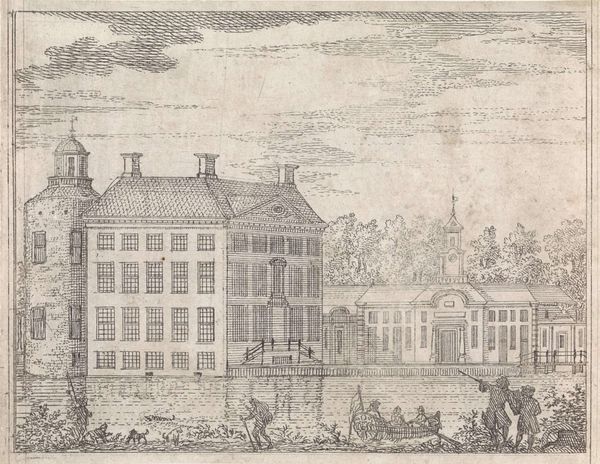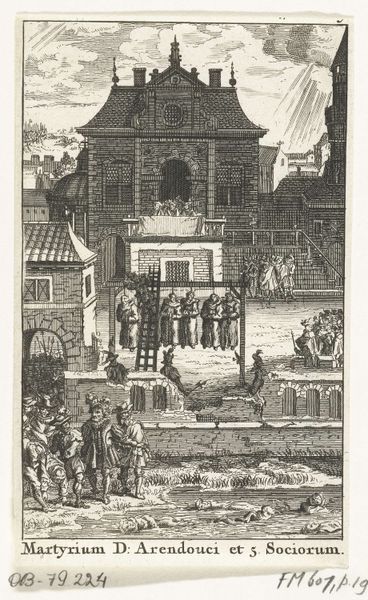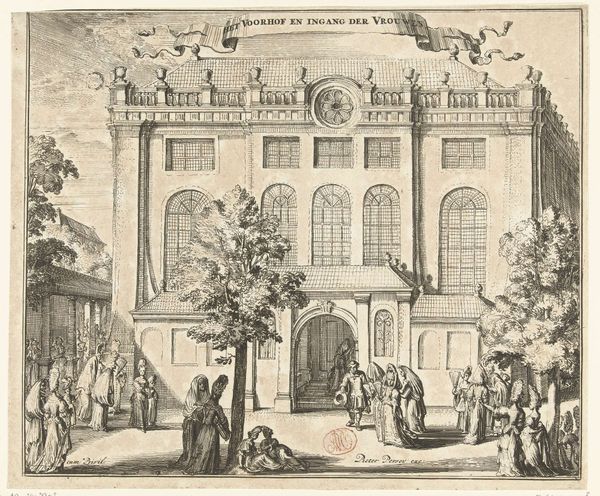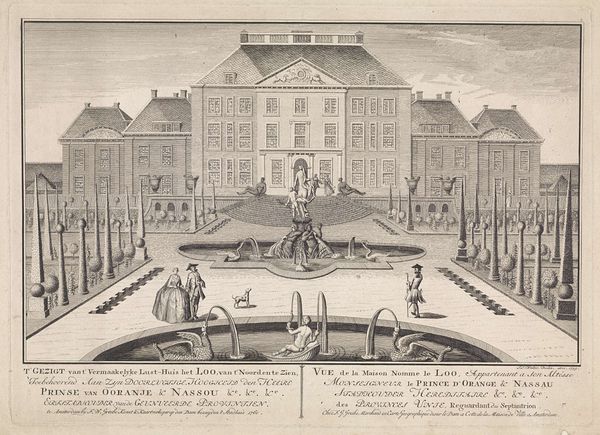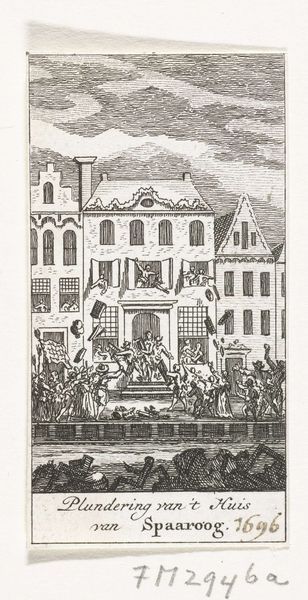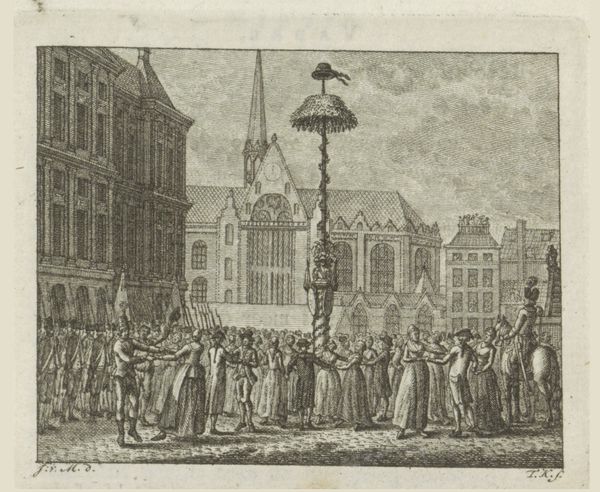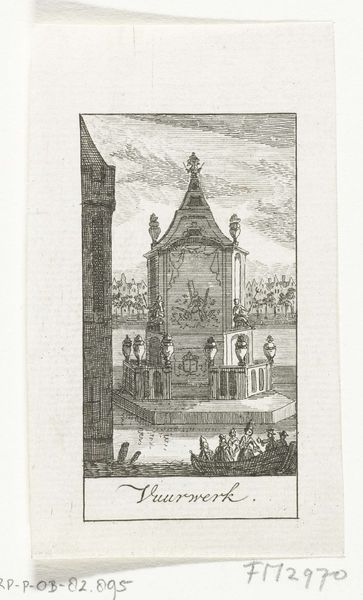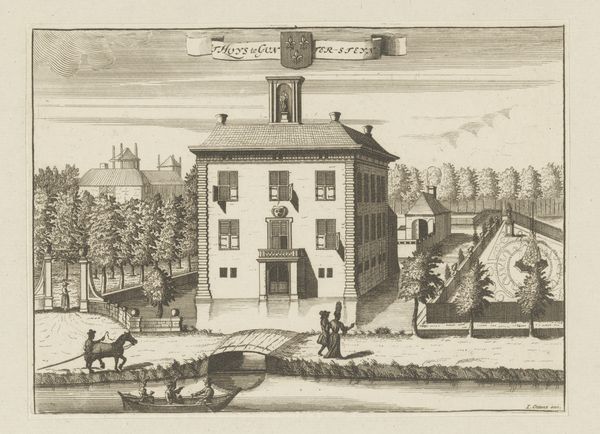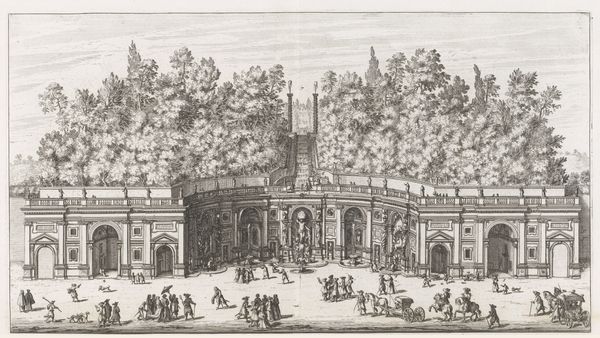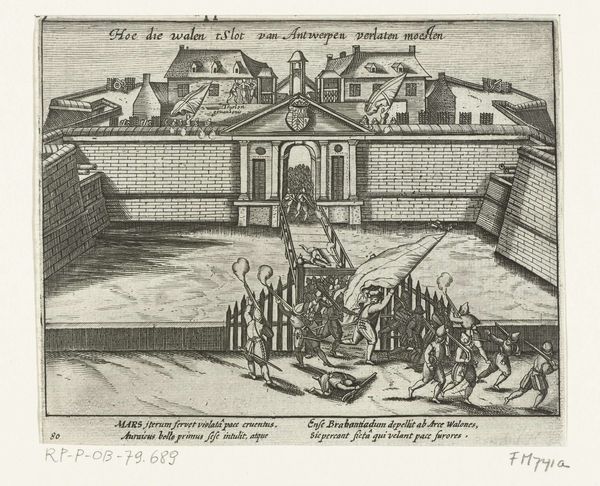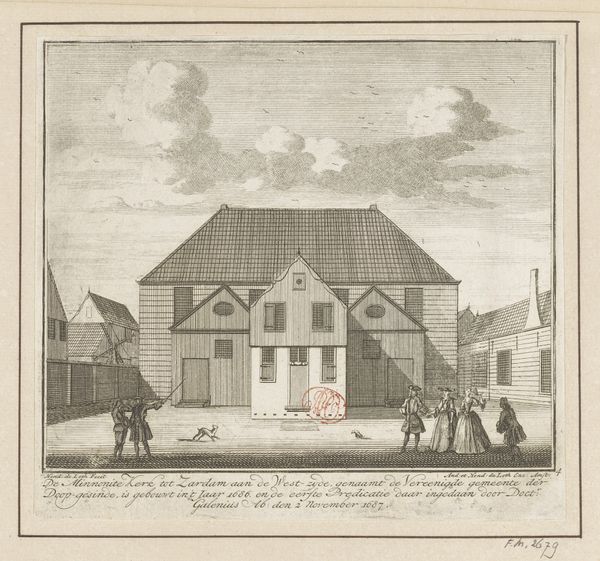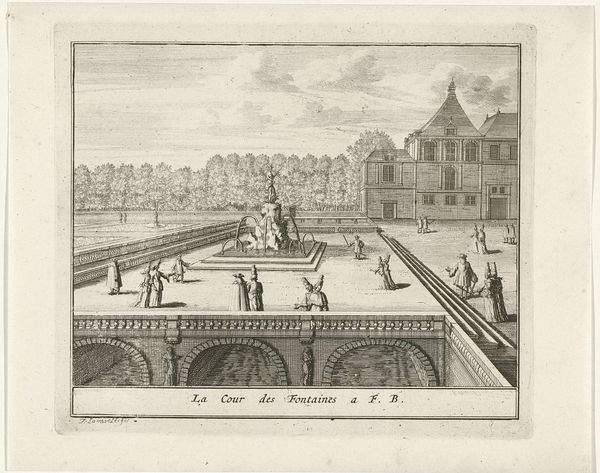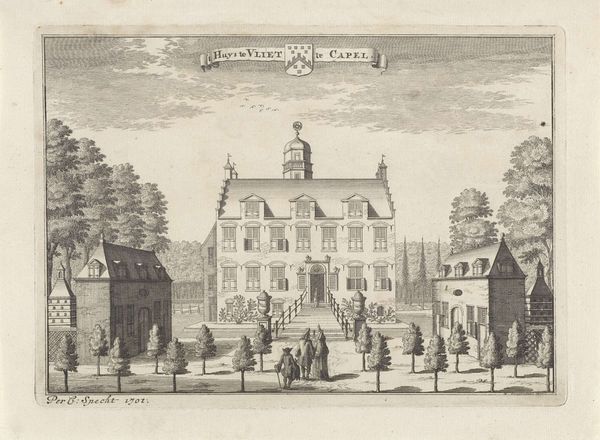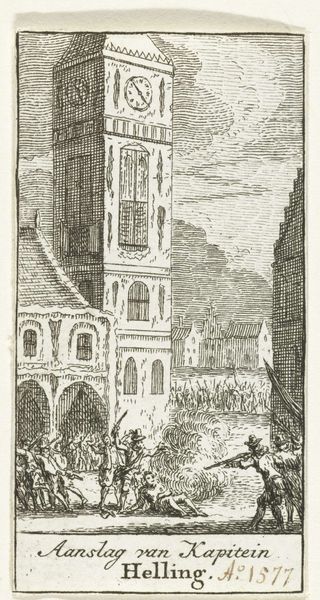
print, engraving
#
neoclacissism
# print
#
pen illustration
#
old engraving style
#
cityscape
#
history-painting
#
engraving
Dimensions: height 161 mm, width 122 mm
Copyright: Rijks Museum: Open Domain
Johan Christoffel Schultsz's "Freedom Tree for Maritime Law," made in 1795, presents a scene dominated by symbols of liberty and civic identity. Rising prominently is the liberty tree, adorned with a Phrygian cap atop a pole, a direct reference to freedom and the values of the French Revolution, which was then sweeping across Europe. Consider the tree as a latter-day maypole, a symbol dating back to ancient fertility rites, repurposed here as a beacon of republican ideals. This is not merely a political statement; it’s an invocation of deep-seated human aspirations for renewal and autonomy. Such symbols evolve, their roots extending into the distant past even as their branches reach towards the future. The Dutch flag waving atop the building integrates national pride with revolutionary fervor, uniting local identity with a broader European movement. The collective memory and subconscious desire for freedom take physical form, engaging viewers with a powerful message of hope and change. This visual language speaks to both the intellect and the emotions, creating a profound connection between the observer and the artwork. These symbols are constantly evolving in their meaning.
Comments
No comments
Be the first to comment and join the conversation on the ultimate creative platform.
